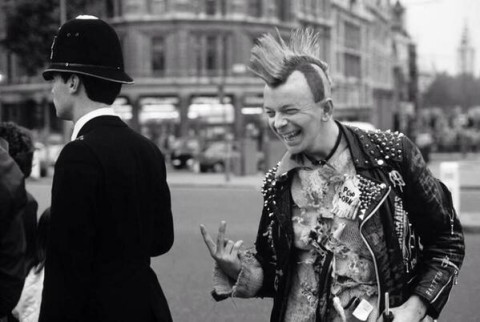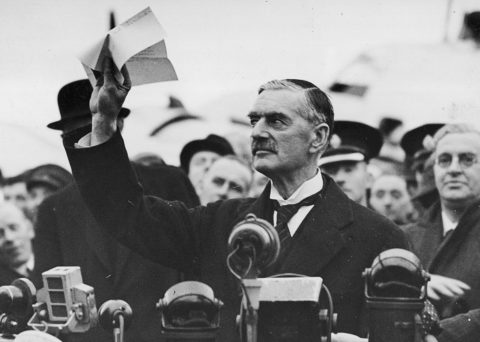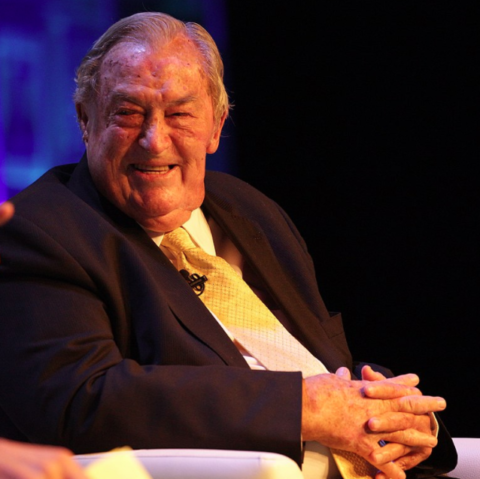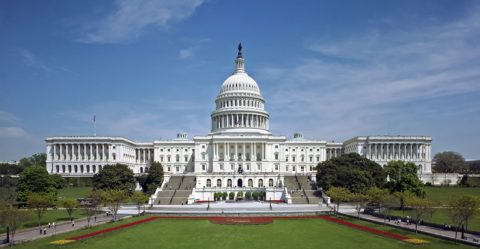Andrew Sullivan on Caryn Elaine Johnson (stage name Whoopi Goldberg) and how her unconsidered anti-semitic worldview has been moulded and shaped by Critical Race Theory:
Whoopi Goldberg, I think it’s safe to say, is not a deep thinker, and wouldn’t claim to be. She’s also clearly not an anti-Semite. She’s a talented entertainer and merely reflects many (but not all) of the assumptions of Hollywood types — well-intentioned, rarely ruffled, cultural leftism. But that’s precisely why her comments on The View about antisemitism and the Holocaust are so interesting. They expose some aspects of “anti-whiteness” and “antiracism” as these CRT ideas have trickled down into the public consciousness, and also a deep, long-standing sense among some African-Americans that Jews in America are not usually the oppressed, but often the oppressor. These are things no one wants to explore very much — because it’s complicated, fraught, and, well, who needs the grief?
So here we go! Anti-Semitism is seen as not racism, because for Whoopi, and critical theorists, “racism” is defined as an essentially Euro-American social construction, which didn’t exist before the colonial era, and only applies to powerful whites (and fellow travelers) vis-a-vis powerless blacks. Racism is not, for them, a universal, instinctual, tribal, evolution-rooted suspicion of different-looking others that is always with us, and can happen anywhere. It is solely rather the deliberate, historically contingent oppression of the non-white by colonial “white supremacy”. However much truth this contains about American history (and it does contain a lot of it), it’s a terribly parochial view that misses a huge amount in the world, throughout history, and in America.
As Adam Serwer explains, this parochial view of racism also “renders the anti-Semitism that led to the Holocaust illegible”. Well, yeah. Any theory of racism that cannot explain the Holocaust is not just illegible, it is untenable. It would mean that the conflicts between, say, Tutsis and Hutus, Germans and Slavs, Jews and Arabs, Burmese and Rohingya, or Han and Uighur, are not instances of racism — because they are not examples of “white targeting non-white”. It wouldn’t include the Bible’s description of the Jewish people’s own enslavement by the Pharaohs, for goodness’ sake. And that’s a problem for any concept of racism — let alone one that now controls much of American culture.
Here, for example, is the Anti-Defamation League’s woke definition of “racism” the day Whoopi made her remarks (a definition swiftly changed after the contretemps): “The marginalization and/or oppression of people of color based on a socially constructed racial hierarchy that privileges white people.” But since Jews are deemed “white people”, by this definition, how could the Nazis have been racist? The same would also have to be said, would it not, about Louis Farrakhan today? He may sound like a Nazi about Jews, but his skin color means he cannot be racist.
Whoopi’s gaffe helps explain why the mainstream media now describes young black men assaulting Jews and Asians as expressing … “white supremacy”! This is what the WaPo op-ed page, referring to growing Latino support for Trump, called “multiracial whiteness”. If they are non-white and bigots, they miraculously become white. And notice how bigotry is exclusively ascribed to a single “race”: whites. Without whites, we’d have no racism at all.
This is not the only way critical theorists distinguish anti-Semitism from racism. “Whiteness”, disproportionately including Jewishness, is wrapped up in systems of oppression, especially capitalism, and defined by control of money and power. Robin DiAngelo argues in White Fragility that “white supremacy” exists in mainstream America by noting how many “white people” there were in various positions of power in 2017:
Ten richest Americans: 100 percent white (seven of whom are among the ten richest in the world). US Congress: 90 percent white. US governors: 96 percent white. Top military advisers: 100 percent white. President and vice president: 100 percent white. US House Freedom Caucus: 99 percent white. Current US presidential cabinet: 91 percent white. People who decide which TV shows we see: 93 percent white. People who decide which books we read: 90 percent white. People who decide which news is covered: 85 percent white. People who decide which music is produced: 95 percent white. People who directed the one hundred top-grossing films of all time, worldwide: 95 percent white.
She goes on to emphasize Hollywood’s influence, in particular. Now just put the word “Jewish” where the word “white” is, and her list reads a bit differently, doesn’t it: “People who decide which books we read: 90 percent Jewish. People who decide which news is covered: 85 percent Jewish.” It’s an assertion that one race hoards power, controls the media, and directs the culture, a race so powerful it permeates everything. Sound a little familiar?















